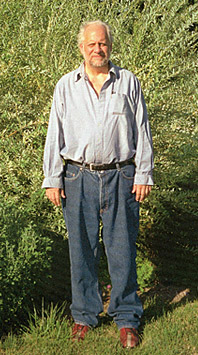What Is Germany?
Many years ago, as a result of library research on the great German poet Else Lasker-Schuler, I came across many essays about her and her colleagues. What struck me most was their unshakeable love of Germany. Even after the Holocaust, despite their Jewish identity and living in exile with the memories of dead friends and family, they remembered their beloved Germany. I marveled at this and mistook it for an expression of abnormal psychology.
I didn’t know it was a simpler and, for its naturalness, stronger self-identification with their homeland than that of, for example, Bavarians. Far from being what today one would refer to as “ethnic”, these mostly well-educated sons and daughters of middle class Jewish families didn’t merely blend with their surroundings, they often bore the German standard higher than their neighbors. In the 19th century, “Germany” was still a new idea imposed on principalities, districts, leagues and nations. However, everyone spoke German: a variant or dialect at home, “high German” at work and “polite German” in public. Germans are more exacting and self-conscious in their speech and writing than the British. The north and central parts of Europe were an enormous linguistic federation of people who spoke German. But, unlike the Jew, the gentile’s home state was the only one in his heart. In contrast, the new creation known as “Germany” had a modern identity that transcended these homeland borders. Ironically, this made the Jew more “German” than the average German.
I remember my paternal grandmother saying she was from Schleswig-Holstein: “Aus Kiel gekommen”. It was actually a small town west of Kiel and much closer to Denmark than the rest of Germany. In turn, though born in the far north, she was from ancestors a world away, near the eastern Saxon city of Chemnitz, the family still identifying itself as such. (My grandmother introduced me to tulips, and later to weeding. She was nearly six feet, strong and a bit intimidating—probably carried some Dutch and Celtic blood.)
It’s not well known that German grain and cattle farmers were as restless as the pioneers of the Old West. For instance, the “prairie schooners” that fanned across the plains were modeled on German farm wagons. Even my paternal grandfather—baptized George Jacob Balzheiser—was conscious of his roots in the “Rheinfalz”, not far from Worms. His grandfather made the trip over, first to New Orleans, then Memphis and finally Cincinnati, wearing his worldly possessions including a letter of introduction to relatives who worked in a slaughterhouse. Yet before coming to the Rhineland, the paternal clan had lived in the northwest, or Lower Saxony. They were “Niedersachsen”, not “Deutsch” or “German”—that was only the basic language, and, in their case, an almost Dutch form of it. Perhaps it was this great variation and dynamism that, in part, made Germany attractive to Jewish communities. Certainly, the familiar continental climate of North America enabled German immigrants to dominate, relatively quickly, the US agricultural industry.
Although I never knew my grandfather, I visited a couple of ancestral haunts during a summer vacation in 1973. Dad organized the trip and met me there. Our relative and tour guide was a pleasant elderly man who was nearly blind, but still able to walk with us and point out the apartment building that stood on the site of the Balzheiser home. I remember Dad taking a photograph of the old gentleman rubbing his hand on the wall, as if to make sure it was the right one.

Joseph Campbel reminded us that “Eden Is” and sounds like you are in the zone.
I enjoy your posts. Thank you, Bettie